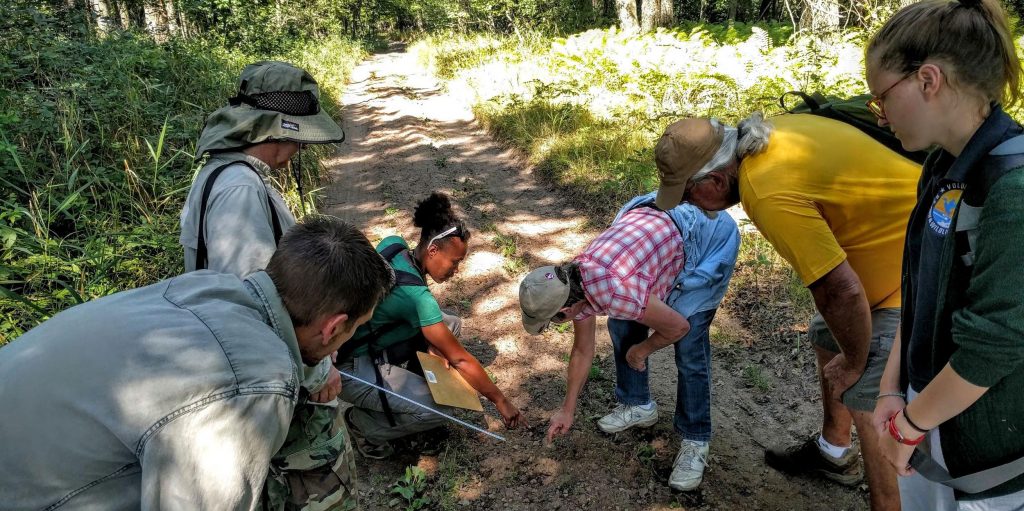Community Initiatives
People of all ages and levels of science knowledge can participate and learn from informal science education activities. LTER sites host a variety of informal education resources such as nature trails, field investigations, research tours, and community science projects. The goals of such programs include nurturing curiosity, sharing useful knowledge, and inspiring appreciation of the ecological world.
Through the Advancing Public Engagement at LTERs (APEAL) Project, LTER researchers are collaborating with science communication researchers and practitioners to understand the interests and needs of local communities and resource managers.
Many LTER sites participate in community science projects such as the National Phenology Network or Cedar Creek LTER’s Eyes on the Wild project, in which citizen scientists help identify camera trap photos. By pairing students, interested residents, or stakeholders with scientists to further scientific research, community science helps to engage non-scientists in the research process and make it accessible to everyone.

Another way for scientists and non-scientists to learn more about each other’s work, lives, and motivations is to participate in art-science collaborations, which take place at many LTER sites. Several LTER sites also participate in the Ecological Reflections project, a network of sites dedicated to long-term, collaborative science and humanities inquiry at particular sites of great ecological or cultural importance.




